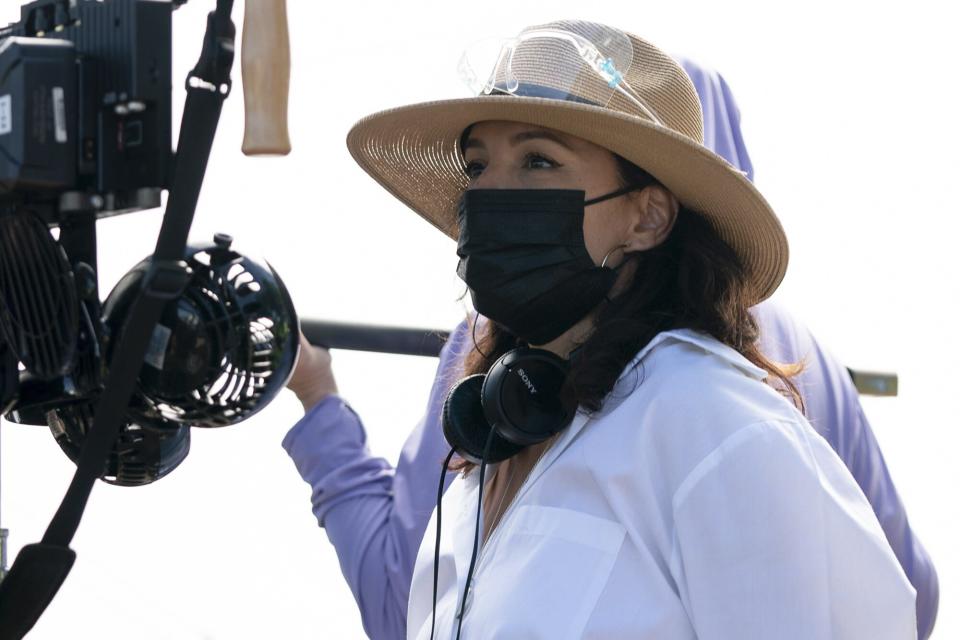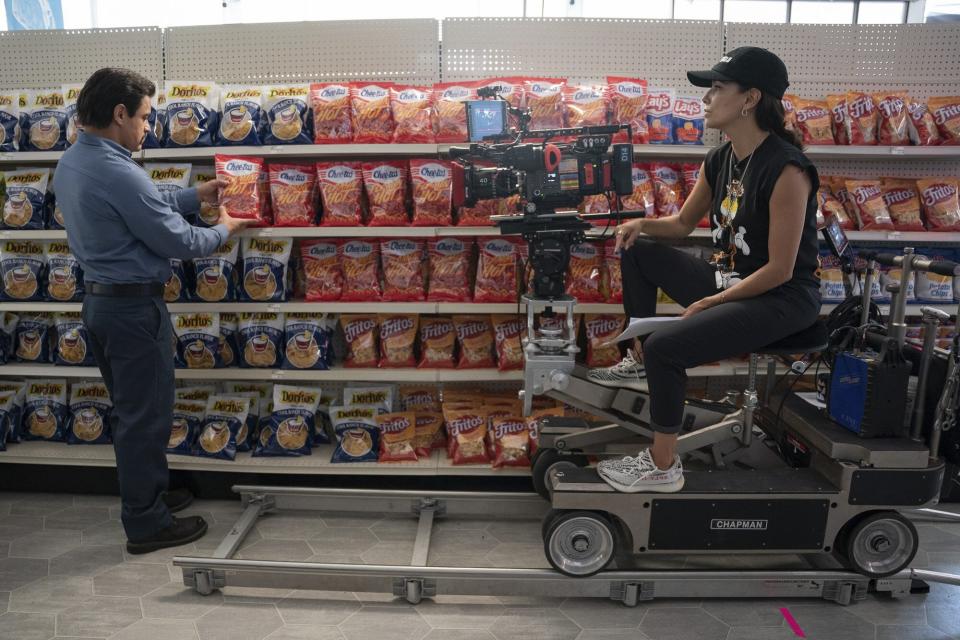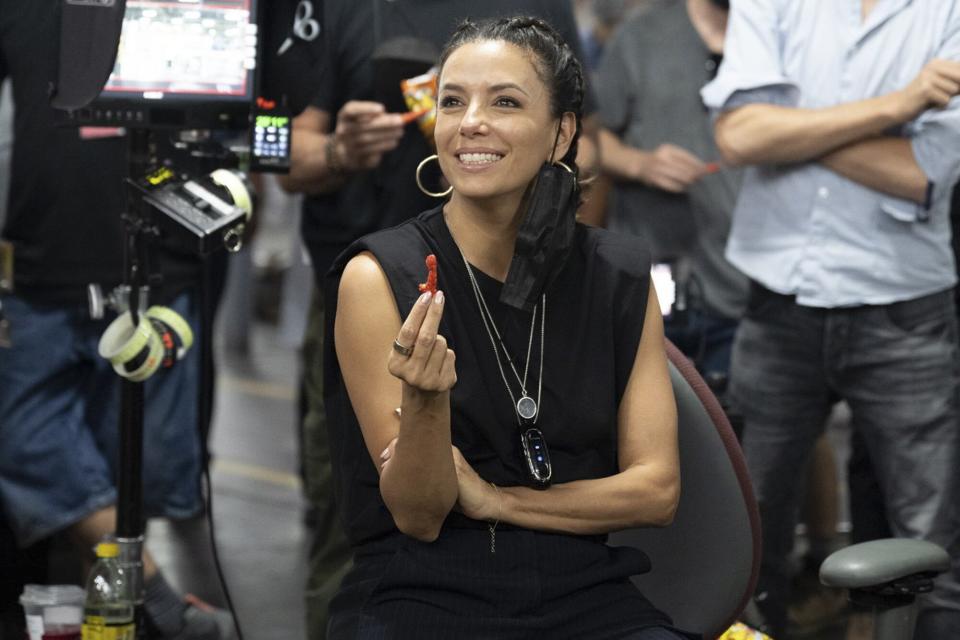Eva Longoria brought her 'ancestors in the room' when making Flamin' Hot

- Oops!Something went wrong.Please try again later.
- Oops!Something went wrong.Please try again later.
Stepping into the director's chair for Flamin' Hot (out now on Hulu and Disney+) was something Eva Longoria didn't doubt for one minute. "I immediately took ownership," she tells EW. "I'm the only person who can tell this story."
The first-time feature film director didn't give anyone a chance to doubt that she was the only one who could tell the story of the creator of Flamin' Hot Cheetos, Richard Montañez (played by Jesse Garcia). "I read his story and I was like, 'I'm Richard Montañez.' I've been told ideas don't come from people like you. I've been told women shouldn't direct. I've been told many nos."
So what's a strong woman with a goal in mind to do? As she sits sipping coffee over Zoom, Longoria says she "went in" and "just took the job." She adds proudly, "I didn't ask for it, I didn't beg for it, I just took it. I made them give it to me, and they did."

20th Century Studios Eva Longoria on the set of 'Flamin' Hot'
But the movie Longoria set out to make is not about the chip; it's about the man. Flamin' Hot is the story of Montañez's hard fought journey rising from being a cholo (gang member), to janitor, to ultimately becoming a top marketing executive at Frito-Lay — a rise brought possible by being authentic to who he was. "I wanted to make a movie about Richard Montañez," says Longoria. "He's inspiring, he's complex, he's interesting…. There are a lot of lessons to be learned from his journey."
Despite having shed tears over the first script, Longoria hired writer Linda Yvette Chávez (Gentefied) after she was handed the reins to the film, and Chávez immediately "did a page one rewrite." "The movie you see is [her] script," says the director.

20th Century Studios Jesse Garcia and Eva Longoria on the set of 'Flamin' Hot'
The Mexican American star felt the pressure knowing she needed to show her community authentically, noting how few shots the Latino community gets to not only lead a film, but also write and direct one. "It was at the forefront of my mind, going, 'I cannot fail, I cannot fail these communities depending on the success of this movie,'" says Longoria. "Because we don't get a lot of bites at the apple. If my movie fails, people can say, 'Oh, female filmmakers don't really work'. Or, 'Oh, we tried to do a Latino story that one time and nobody showed up. It didn't work.'"
Longoria found a way to make sure she brought her community with her every step of the way — by hiring an entirely Latino crew. "I was so proud because we didn't compromise talent because we did a diverse hire. It made the project better," proclaims the 5th generation Texican. "We brought our ancestors in the room with us and we were like, 'Okay, we're all here, all thousand of us.'"
Continues the director, "There's talented people from our community, there's talented women. And so I think it fueled us to do a good job, but it's also because authenticity was my North Star and with shooting the film, that seeped through so much because everybody came from an authentic place."

20th Century Studios Eva Longoria directing 'Flamin' Hot'
That authenticity means also honoring parts of our community that have been highly stigmatized and turned into harsh stereotypes. Both Richard and Judy Montañez were former gang members, and while both of them have since left the life behind and are devoted Christians, Richard himself wasn't initially on board with sharing that part of his past with the world.
"[Linda and I] both said we have to show cholos, because that's the reality of who Richard was back then," says Longoria. "But how we show them is going to be with complexity and with care that has never been done before. We really, really took effort into doing that."
As an example, the director notes how a storyline involving Bobby Soto's character, Tony, dealing drugs for his mom's chemo "was a true story from one of the cholos that was in the movie. That is a story of survival, right? That's a story of I don't have any other choice, and so I'm so happy. People who understand the cholo community can see this, that we handled it with such love and care, because it is a love letter to them."
And that letter can now be opened on both Hulu and Disney+.
Want more movie news? Sign up for Entertainment Weekly's free newsletter to get the latest trailers, celebrity interviews, film reviews, and more.
Related content:

